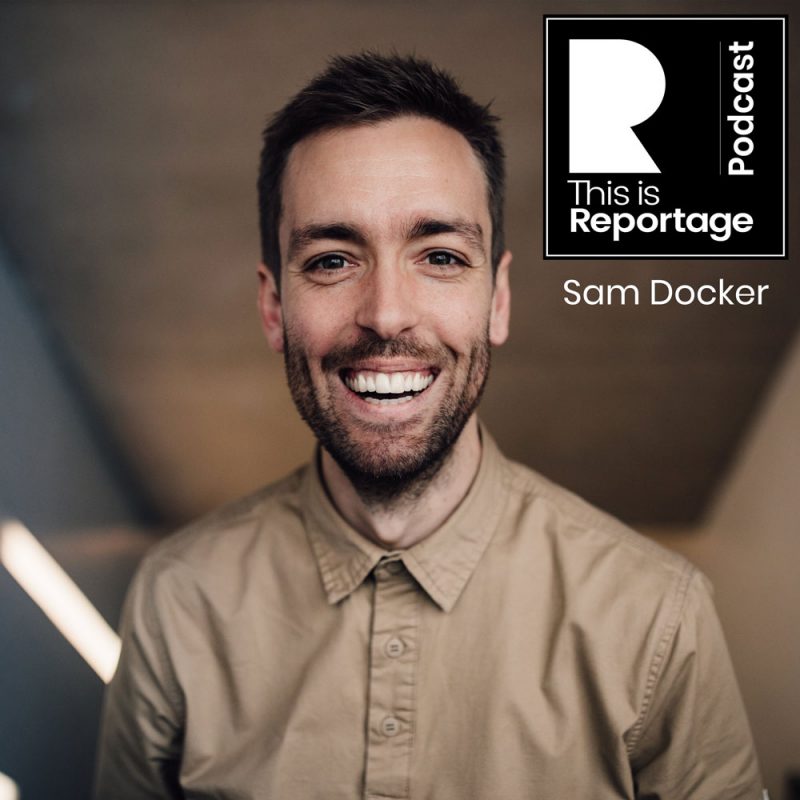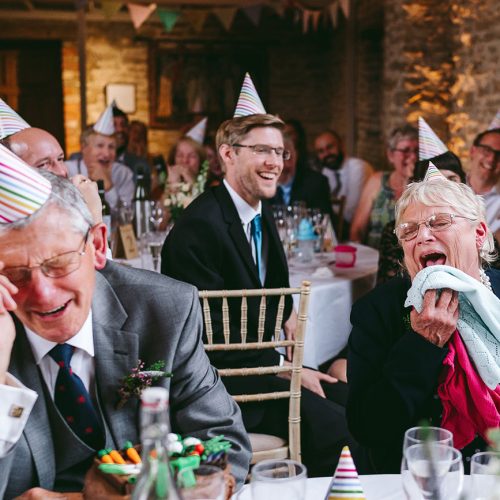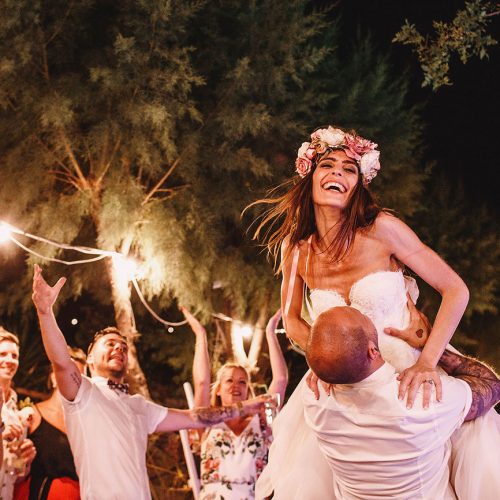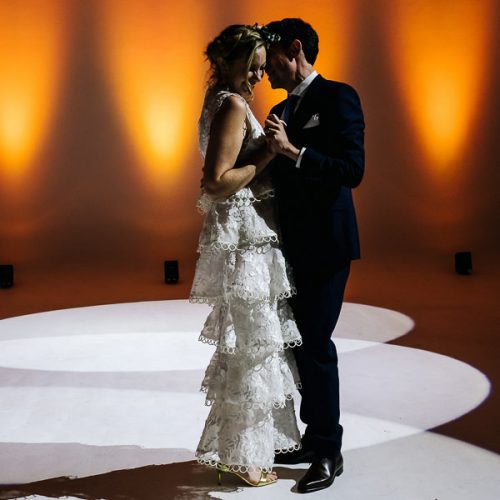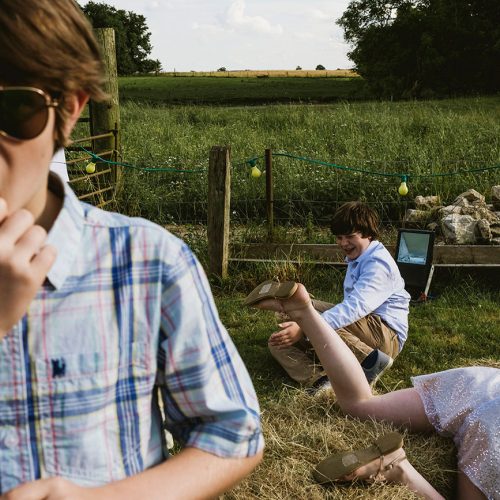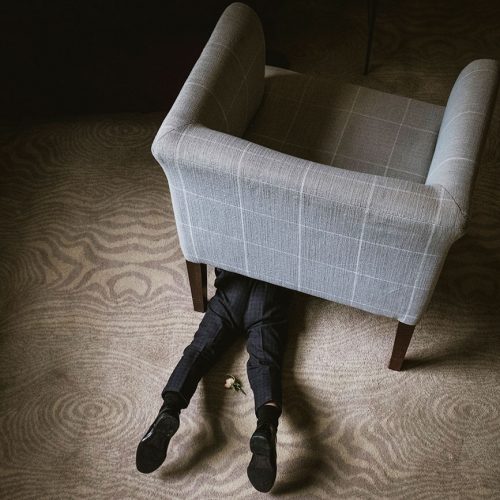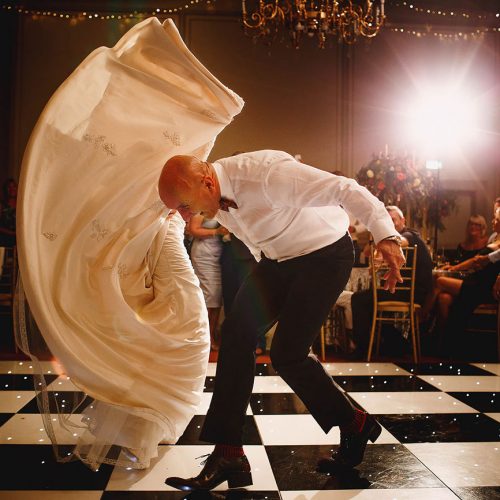Podcast Episode 30: This is Sam Docker
So great to have the lovely Sam Docker on the Podcast for episode 30! Sam is a Rangefinder 30 Rising Star, winner of numerous TiR Awards, globe-trotting wedding photographer, and also just an all-round top guy – an honour to talk to him for the Podcast! Sam shares so much with us today, including:
- how his life’s been impacted during corona and looking at the positives,
- his recent experience doing an Iron Man (and why…!)
- destination weddings (his thoughts on getting and shooting them, pricing and more)
- Instagram tips,
- how he went from a business selling second-hand clothes to wedding photographer,
- a recent favourite joke and album-choice,
- the effect becoming one of Rangefinder’s 30 Rising Stars had on him and his career,
- his approach to workshops,
- the story behind one of his Reportage Awards,
- risk and trusting yourself,
- his thoughts on equipment and camera systems in general,
- his top tips for better documentary work,
- his thoughts on staying late,
- an embarrassing moment of his photography career,
- great advice about starting out,
- his first job at McDonald’s and what he’s learned from past jobs,
- his lenses of choice,
- advice on editing,
- Netflix suggestions and how they can affect your photography,
- and much more…
You can listen to our interview with Sam (who is one of the best wedding photographers in the UK) in all the usual ways: Spotify, iTunes/Apple Podcasts, Google Podcasts, YouTube, and below in this post (with a full transcript too if you prefer to read).
Alan Law:
Hey Sam, how you doing?
Sam Docker:
I’m very well, thank you Alan. Very well. How are you?
Alan Law:
I am, yeah, fine, fine, fine.
Sam Docker:
How’s life down in Cornwall at the moment?
Alan Law:
It’s nice. It’s sunny which is rare, which is all good. How about in like deepest, darkest Derbyshire?
Sam Docker:
I’m confined to the office and we haven’t got the doors open yet so I can’t tell you what it’s like but it’s been nice recently. It’s been nice that it’s definitely helped that the weather has been, you know, decent during lockdown. Can you imagine what it’d been like if it had been torrential? We wouldn’t have been having much fun, would we?
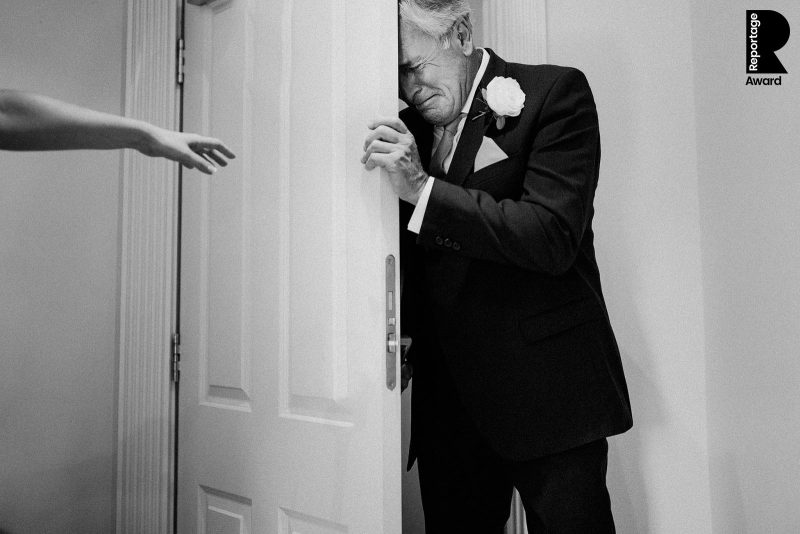
Alan Law:
Have you been getting out and exercising and things?
Sam Docker:
Done a few bits, yeah, have been on the bike and just doing a few little runs. Just trying to keep things ticking over and you know a daily walk with the kids as well, which has been quite a nice thing actually. There’s definitely been some positives from it all. Like things that we’ve been doing that you wouldn’t normally just do, you know we bought a jigsaw mate. I mean.
Alan Law:
Nice, what are you making?
Sam Docker:
It’s a New York skyline.
Alan Law:
Very nice.
Sam Docker:
Thousand piece jigsaw.
Alan Law:
So it’s not a jigsaw that you use to create wood and you know, I’m so impractical aren’t they called a jigsaw as well. Those kind of blades things.
Sam Docker:
We’re not doing, you know, DIY crafting Alan. We’re talking about just the basic form of jigsaw puzzle.
Alan Law:
Okay. That’s funny. Yeah. We did a super Mario one as well. Actually 500 piece. Because my son is obsessed with Mario, but my wife ended up doing all the jigsaw, yeah. But talking about kids going for a walk, don’t yours complain? Whenever we say to the kids, let’s go out for a walk, they’re always like, ah, really?
Sam Docker:
Yeah, they tend to just get out and just start fighting as well, I think. Do you know what’s been really good, actually, just like trying to find things for them to do, like getting a scavenger hunt print out. That’s been a big thing. So then they’re like, can we do a scavenger hunt? I’m like, yeah, of course we can. Yeah, it’s been great. Scavenger hunt off Pinterest and yet you’re away. That’s an hour filled, isn’t it?
Alan Law:
And you mentioned that you’ve gone out for exercise because didn’t you recently do an iron man?
Sam Docker:
Yeah.
Alan Law:
Why? The first question, why on earth, man? What does that entail again, for people who don’t know, like I don’t really know exactly?
Sam Docker:
So it’s basically a long form of a triathlon. So it’s a two and a half mile swim, onto 112 mile bike ride onto a marathon all in one day. Like literally straight up, back to back. Yeah. So like a triathlon, but at that distance, and really weirdly, I’d never heard of it until I went to meet a couple whose wedding I was shooting down in London and then I just hung out there. They had like the, you know, the registry office, wedding and stuff. I went down and we had a few drinks afterwards and they told me they’d done an Iron Man in Sydney, both of them as a couple had done it. And I kind of said to them, what is that? And asked the same sort of question. I was like, no way. That is mental. Like I was just running 5ks at the time. I was like, I was dead too after that I could just go out and run a decent 5k. And when they told me that, it made me start to think my God, that’s like how do people get to that? And then, just through like I suppose small steps, just like three or four years of looking after myself, running a little bit further each time and you know, getting a PT and just trying to like look after myself, I kind of got to a point where I was like, I kind of liked the idea of a bit of a challenge here and just doing something that’s a little bit more of just beyond what I’m capable of. And I think that’s probably the life lesson isn’t it? It’s about trying to pick a goal that is beyond your ability and the impact that has now. I’ve been running recently, I find myself running and I’m like, how on earth have I run an iron man? How have I done that? I can’t even go and do 10K at the minute. But because it was there because it was over me and it was because I knew that it was coming up, you know, that year building up to it, I was like, I’m on it now. I’m on it.
Alan Law:
Man. That’s mental. That’s so awesome that you did that. Was it France?
Sam Docker:
Yeah, it was Vichy in France. Yeah it was. It was beautiful. It was an amazing weekend. A great, just a great experience. Like even if people are just thinking, you know, I should just go and sign up for 10K, like the experience of doing something and you know, turning upon the start line and thinking, God, I’ve never done this before, is a real buzz.
Alan Law:
That’s cool. How long did it take you to do it then?
Sam Docker:
13 hours, 17.
Alan Law:
I could not imagine.
Sam Docker:
And it was the first, I’ve never done a triathlon before, so I’ve never, I just went straight into the deep end. And I think by nature I’m a bit like that. I just tend to, I don’t do things by halves. If I’m going to do something, I just go all out and I’m literally did my first outdoor swim on the Tuesday before I went out to France. So I’d been swimming, I felt okay swimming but I’d never been in a Lake. So
Alan Law:
Is it quite different because I’ve never done that.
Sam Docker:
Yeah it’s really different. The biggest thing is it takes your breath away a lot more than in a pool. So you straight away you go in and you’ve got like a bit of a cold water shock and you just start, you’re struggling for breath straight away. So you’re breathing.
Alan Law:
That’s really fun, man. Sounds so much fun.
Sam Docker:
Oh mate. Honestly, other than having kids and getting married, I’d say it one of the best weekends of my life. It was brilliant.
Alan Law:
Really wow, you’re going to do it again then?
Sam Docker:
I would like to say that I will do another one. Yeah, I can definitely see why people get the bug, but it’s just that it’s probably just the time, the time and just time commitment to it is a big thing. And I think at the moment there’s probably other things going on that probably, but generally it’s definitely something I would like to say, you know, maybe when the kids were a little bit older and I got a little bit more time back then I will. Yeah, it was great.
Alan Law:
You did it in France and you do loads of destination weddings. You weren’t shooting a wedding the next day after the iron man, were you?
Sam Docker:
I wasn’t, no.
Alan Law:
That would have been a bit hard-core, but yeah, you do loads of destinations. So you know, there might be people listening here, really want to do more of those. Can you tell us how you got your first one and how you get so many now? What’s the trick?
Sam Docker:
I don’t know. Well first I think people kind of, they want to shoot destination weddings. I understand why they do, but actually they’re not as, I don’t know what the word is. I think people should be careful what they wish for in a way, and I’m not saying people shouldn’t want to shoot destination weddings. It’s like they are, but I love going to them. There’s something about the light in Italy and France that just trumps England and yeah. Derby yeah. And you know there’s a real buzz when you’re away and like people that are in a very different mood, but there is a big trade off to that and the trade-off is that you’re away for three or four days and you all know as well as I do that you know when you’ve got kids and a wife, being away from home for three or four days at a time, you know takes its toll eventually. And it is really hard, you know. People think, Oh, look at what they’re doing on Instagram, look at where they’re going to look at, what they’re traveling on and where they’re staying and stuff. And actually I’m at a pretty basic Airbnb, eating a bowl of pasta, you know, and just… And it’s not as glamorous as people might think it is.
Alan Law:
I find them more stressful as well. I do.
Sam Docker:
Yeah. Yeah, there’s definitely more, you know, and I think sometimes you could break it down and go, actually I could shoot three weddings in the UK in that time. From a financial point of view, you could make UK weddings far more profitable for your time. So for me, I do think pricing is a big thing. And that was part of the reason why I drove my price up a few years ago because I found myself getting more and more inquiries for abroad. And you do, you know, it hard when you get inquiries, right? I’ve got to try and book that wedding. And if you’re booking them, if you’re booking those weddings at 1200, 1500 pounds and you’re traveling away for four days, you break the numbers down, it doesn’t really make sense. It doesn’t stack up. So I started to charge a bit more. But my first one was, I think it was in France. Again, I think I probably charged about 1200 quid and, you know, included all my travel in that price as well because I just wanted to go and do, you know, I wanted to go and shoot abroad. I wanted that. I wanted those images in my portfolio and I look back on it now and actually I do think, you know, when I look at some of my favourite images and my best work, that a lot of them are, you know, are abroad. And I do think that they are a big brand and portfolio raiser, they do make you stand out slightly from other people.
Alan Law:
I definitely see that. Yeah, definitely. How do you get so many now? Do you specifically kind of SEO for it or was it just natural blogging?
Sam Docker:
Like, you know, when we talk, when people talk about SEO and I don’t, and you all know as well, there’s no magic trick to it, is there? I mean, I don’t know of one, I think it just comes to being consistent with your work. You know, keep putting stuff out, trying to blog, you know, when you do blog, make sure that you’re blogging it well. And just being consistent with your work process really. You know, that when people say talk about SEO or finding inquiries, it often comes down to the fact that they’re not doing something like they’re not doing it to the level that it should be done and they’re not doing it often enough. It takes hard work, doesn’t it? You know, you’ve got a blog, you’ve got to put the effort into it, tag your images and to put stuff out to Instagram daily and you know,
Alan Law:
Yeah, you do really well, talking of which you do really well on Instagram as well. So yeah. Is that one of your biggest tips for Instagram? It’s like consistency.
Sam Docker:
I think I’m doing okay. Even I can look at it and go I could do that better. You know, I find the whole story side of Instagram really difficult to keep on top of. And I find it a real drain sometimes. You know, I can go for a week or two, having been really on it with stories and then I just leave it for three weeks. And you just, yeah. But actually the posting of the images to Instagram I think is pretty straightforward. You know, you just get yourself a good planner and just schedule it and leave it and you know, put that time into it.
Alan Law:
What do you use?
Sam Docker:
I’ve just started to use Tailwind and that’s really good. I’ve used Buffer before. It was okay. And then is it Planoly?
Alan Law:
Oh yeah. So many
Sam Docker:
Tailwind’s probably been my favourite one so far. So that’s been good. And just trying to put the effort in, you know, once a month to just batch everything for the entire month and know that it’s going up every day.
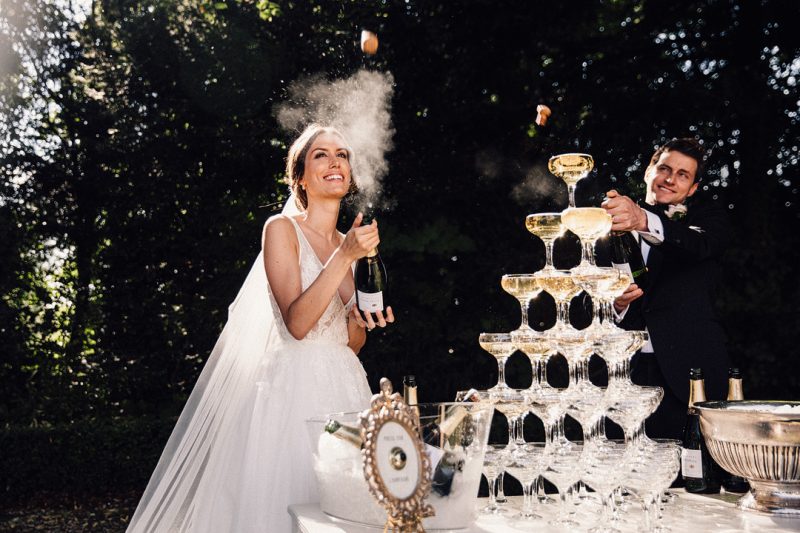
Alan Law:
Yeah. That makes sense. Is it important for you what you write as well caption wise or is it just sort of about the images for you or is it both or?
Sam Docker:
I think it’s a little bit, I mean obviously the image has got to be strong first and foremost doesn’t it? It’s got to be on brand. I just won’t post images just for the sake of it or I won’t post an image that I, you know, some images you naturally look at it and you think that’s going to get more likes and engagement. Some other images you post, you’re like, I don’t know what this is going to get but I’m going to post it because I like it. It speaks to me and it feels like it’s on brand and it is going to appeal to my clients. Again, it just comes down to being consistent, doesn’t it, with your, you know, with your posting and your images and your tones and you’re just trying to, again, thinking of that target client and not trying to appease every potential, you know, wedding couple, you know, you can’t please everybody.
Alan Law:
No, I please hardly anyone. So No, that’s cool. You trained as a creative product designer, I believe. Is that right? Yeah. I did an English degree and then I went into SEO, which was handy. That was handy. So how did you go from creative product designer to weddings then? What was your tale?
Sam Docker:
So in the final Year of my degree, very bizarrely, I started buying and selling second-hand clothing actually, really straight from uni. I actually was in my final year, so my final, yeah, start of my final year. So I got 2:1 in my degree which was all right given that I set up a business with a friend and we turned out, know we were VAT registered within the first three months. Just astonishing. It was in the very early days of eBay. Like yeah, we were buying second hand vintage items from charity shops when they were dirt cheap and then getting them online. And yeah, it was just bizarre. It was really one of those things you look at and you just think, how did that happen? But it did.
Alan Law:
How long did you do that for?
Sam Docker:
For six years that went on for. At one point we had five staff, we had an enormous, huge warehouse. We would go abroad buying stock and we’d fill transit vans with stock and then break it down, clean them, relist them, and sell it. And that was it until really the recession hit. And then that was the point at which the wheels started to come off. And, you know expenses went up and people spent less. And, you know, there comes a point, it doesn’t know when you’re like, I’m doing this for no money, so why am I doing it? And that kind of coincided with the time that I, you know, because we were selling online, I was, I was always a creative. I always enjoyed art and design and that kind of side of the business. And I was always kind of taken the lead with, you know, the imagery of the business and I kind of got into studio photography. And then before you know it, people, you know what it’s like you’ve got a camera and somebody saying, Oh, I know of someone’s getting married, can you, you know, can you take pictures for them? And again, this ties back to the kind of, the bit of me that goes, yeah, I can do that. I’ll do that. I’ll give that a go. I’ve not really had a, I suppose any kind of fear or I don’t go to weddings and worry.
Alan Law:
Never? Not even for your first one.
Sam Docker:
Definitely for my first couple. Yeah, yeah.
Alan Law:
You don’t get nervous now?
Sam Docker:
No. I go to weddings now and I just love it. Honestly, there’s a real buzz and I suppose I have a moment where I think, God, what if I take no good photos today? Kind of rock up and just go, right. I’m just going to work hard and trust. Trust in your instincts and your ability, I suppose.
Alan Law:
Yeah, that’s so true.
Sam Docker:
I think the more you do, the more you realize that, you know, if you work hard and you just keep yourself busy and keep yourself looking for things, you’re going to win more than you’re going to lose. You know, you’re going to get more frames. The worst thing for me is if I become lazy and I miss stuff because I’ve chosen not to keep active on the day. But you know, and when you see something out the corner of your eye like, Oh, I wasn’t paying attention there. I’ve missed that. That’s worse for me. I hate that. But that’s the feeling then. It’s that fear that kind of drives me, I suppose when I go to a wedding.
Alan Law:
Okay. That’s cool.
Sam Docker:
Yeah. Make sure I’m always on it.
Alan Law:
Yeah. Cool. Well you’re doing a great job now.
Sam Docker:
What was the question now? What were we talking about?
Alan Law:
From your second hand clothing business.
Sam Docker:
Like, you know, you look back on things and you think, how did that happen? But actually though, you know, all of our, you know, our backgrounds, you kind of look back at them and think, Oh, actually I learned a lot. You know, that was you know, I employed staff, I run a business. I did a day to day, you know, there was lots of parts of the business that I carried through into my new business and my wedding business. That at the time you kind of probably didn’t realize how valuable those lessons were. And again, the fear of like, you know, we didn’t lose the business as such. We decided to get rid of it before it kind of, you know, racked up any debts. But I did, you know, I did kind of feel like I lost a business that was going well and within the space of a year wasn’t doing well and that fear I think has kind of always been there in the back of my mind. And that idea that it doesn’t matter how you think your business is going, like if your business is going well, it could very quickly if you take your eye off the prize could, you know, not very well.
Alan Law:
What was it called? Your second-hand clothing business?
Sam Docker:
Called Prince’s Vintage. It’s not going to win any name awards.
Alan Law:
No, that’s cool man. Cool. Okay, let’s change tack slightly.
Sam Docker:
Let’s go for it.
Alan Law:
Yeah. Okay. This is a question I’ve never actually asked anyone this. Okay. Do you have a favourite joke that could be fine on air?
Sam Docker:
So bad. I’m so bad at jokes. So bad at jokes. But there was a, Oh what was that? I’m scratching around cause there was a really bad joke. I heard a little kid told someone on the radio in the week. What kind of bees make milk? No, that’s not it.
Alan Law:
It’s a great joke. Oh yeah. That’s great. I saw that on Facebook. That’s good. I like that. I think that’s cool. I like that. One that I heard, I think it was in a Christmas cracker was how do you find Will Smith in the snow? You look for the Fresh Prince.
Sam Docker:
Brilliant.
Alan Law:
That was good. Anyway.
Sam Docker:
One thing you didn’t know about me is I used to be really addicted to soap. It’s okay. I’m totally clean now.
Alan Law:
Ah, that’s good. I like it. Boom boom.
Sam Docker:
Let’s move on to something a bit better than that. We’re not good at jokes. I think we’ve established that we are not comedians.
Alan Law:
Yeah, let’s not do like a stand-up duo. I think that would be cool. That’d be a wedding photographer and stand up. You know, that would be a different edge.
Sam Docker:
You would think we would have better jokes in our library given, given some of the speeches we get to hear.
Alan Law:
That’s true actually. Yeah, that’s true. Okay. I know the question. Totally original question here. You’re cast away on a desert Island. What one album would you take with you?
Sam Docker:
It’s a big question.
Alan Law:
A big one.
Sam Docker:
How’d you even answer that question?
Alan Law:
You just talk man. Open your mouth.
Sam Docker:
If I’m on my own.
Alan Law:
Yeah, you’re going to be all alone.
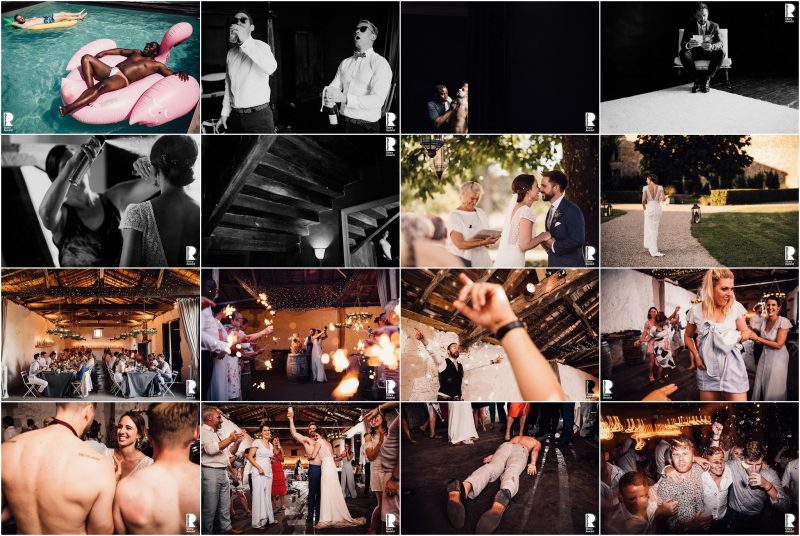
Sam Docker:
I’m trying to think of what I’ve been listening to recently. I’m one of those who are like, you ask me stuff on the spot, I’m useless. Give me an hour, I’d come up with a really good list.
Alan Law:
We can have like 20 minutes of silence and like.
Sam Docker:
Can I look at my Spotify?
Alan Law:
You can look at your Spotify.
Sam Docker:
I’m going to look at my Spotify and I’m just going to give you, let’s go into not Betsey’s party mix. That’s not it.
Alan Law:
Is that like frozen soundtrack and things and?
Sam Docker:
There’ll be a lot of frozen in there. There will be a lot of frozen.
Alan Law:
I don’t know what album I would take.
Sam Docker:
So, I mean you’ve asked me that question, you’ve asked me that question, but if I asked you that question, where do you go? I mean.
Alan Law:
Yeah, I wouldn’t have a clue either. I wouldn’t have a clue. So everyone’s listening to this now they’re like, Oh man.
Sam Docker:
So the one that’s like, you know, if I go on the first one, I don’t think it’d be the one that I took. But the one that sprung to mind, I don’t know why, I don’t know why this happens sometimes, but Brand New was an album I’ve not listened to for a long time, but I loved it. That’s what it’s called. Deja Entendu.
Alan Law:
You know, that’s a band I’ve never listened to, but is it like kind of emo pop punk type stuff. Is it like?
Sam Docker:
I wouldn’t say emo.
Alan Law:
Isn’t around that time though, the kind of like.
Sam Docker:
They kind of came off the back of Incubus, if you’ve seen it.
Alan Law:
Yeah I’ve seen incubus live like three times.
Sam Docker:
I’ve seen them live too. They were great. You can go either way. I love bands like Sigur Ros.
Alan Law:
Yeah, yeah, yeah. I’ve seen them support Radiohead. They were awesome.
Sam Docker:
Amazing.
Alan Law:
And it was cool. Anyway, let’s go off music. We’re not a music podcast.
Sam Docker:
We’re not a music Podcast and we’re not a joke podcast either.
Alan Law:
No although you could call us a joke podcast in a different way, but yeah, right. One of your many awards and accolades, Sam Docker, is Rangefinder’s 30 rising stars, which is awesome. Did winning that have an effect? But yeah, did winning that have an effect on you at all, you know, you or your career?
Sam Docker:
I’m sure. I’m sure it did to an extent. I think it’s like any awards. I think you take them with a pinch of salt, but also it’s nice to get a bit of recognition and you kind of, you just have to use it as a bit of a marketing tool as much as you can. I think it’s definitely a bit of a profile raiser. You know, it probably got me noticed by a few more people that maybe wouldn’t have noticed me initially. And maybe that’s, I do think like the rangefinder is definitely a bigger thing amongst photographers. I think photographers look at that and that was probably the point at which maybe I started to look at, you know, I had a lot of people then asking me about doing workshops and that was probably the beginnings of the education side of my business.
Alan Law:
I was going to ask about that actually.
Sam Docker:
Whereas before I probably wouldn’t have been able to do that without that bit of recognition. So
Alan Law:
Yeah. it’s funny you say because I made the most of it as well in that way when I got it and I started it, yeah, I do really believe in making hay while the sun shines. Yeah, I’d say. Yeah. Was that one of the biggest instigators for you, for doing your own workshops then?
Sam Docker:
Yeah, I think, I think there was that. I think there was also the again, desire to probably work less weekends. I love, like I said earlier, I love going to weddings. I get a real buzz when I’m there. Yeah. But being away from family and being away on a weekend is the big downside for me. And it’s not going to change anytime soon. I’m still, you know, I’m still planning on being a wedding photographer for the foreseeable future, but I do try and give myself a bit more time off now and I do try and balance it a little bit and I will you know, if I’ve got like three weekends booked in June, I’ll keep the other weekend and I’ll keep it free. I won’t book a wedding for it. So workshops kind of allowed me to balance it out a little bit more by kind of saying, right, well if I do a workshop that’s going to turn over the same that I turn over a wedding, so that’s one less wedding to shoot. So, you know, I could do a workshop on a Monday or Tuesday. One less wedding to shoot in the calendar year, isn’t it? You’re getting your numbers to a level that isn’t, you know, just basically consuming your life. Basically.
Alan Law:
That’s good advice. Yeah. And you must enjoy the workshops then. What’s your kind of approach for them? Is it practical hands on or is it more?
Sam Docker:
No, I mean I think we’ve talked about this before outside of this podcast, but like I think we both have a similar approach to workshops in that it’s not a live shoot. I just find that element of a workshop just doesn’t really sit right with me. It’s not really what weddings are about. And I think just going through images that you’ve created on a wedding day and using that time to kind of deconstruct an image and talk about the process behind it and the thinking behind it and how you fell into that frame is probably more beneficial than just going down a street and just saying, Oh, stand here guys. Just because actually from a posing point of view, like I think we both have a similar approach. Like I don’t really pose couples. Yeah. I just don’t see the point. I’d rather just go and go for a walk and let them just hang out for a little bit. And that is literally a level of direction that I give them. It’s just like, let’s go for a walk. Just literally go and stand over there, guys, just go and stand out, just have a few minutes to yourselves.
Alan Law:
And then you’re capturing them then aren’t you? You’re capturing them rather than like a set list of poses.
Sam Docker:
And our couples, they’re not models, are they? They’re not looking for direction and being told, no I think when you start to tell people how to stand and how to pose, they instantly freeze up a little bit and then they start to become a bit more stiff and a bit rigid, you know, and it just looks uncomfortable and unnatural for me and that’s not how I want my work to come across. So, yeah. So going back to the workshop, it is just a lot more informal. You know, try and break the day down into certain sections of like, you know, branding and SEO and marketing and then, you know editing and workflow backup and everything. And I don’t know about you, but I mean, I found the first one really daunting. Probably the first couple were terrifying cause you think people are going to turn up and be like, well I already know that. What have I taken from this? But actually when you start to realize that people are taking a lot of stuff away and they’re really taking some really valuable stuff away and then they come back to you a few months later and they’re like, thanks so much. That was a game changer. Like that’s really changed my business. You’re like, oh that’s amazing. And then you get real buzz out of it and you see people like scribbling notes and some people go away with reams and reams of notes and some people might only take two or three things away, but those two or three things might be as valuable as those pages of notes. You know, we’re all in a different stage of business so it’s difficult to please everybody. But I think we can all learn from, you know, we can all take things away from.
Alan Law:
Definitely. Yeah, definitely. Yeah. I’m the same as you, it was really scary at first. I still get scared with each one, but it’s so rewarding and I really enjoy, it’s fun meeting them all. I love going out with them afterwards as well and having a drink and I just love all that. It’s cool. It’s cool.
Sam Docker:
It’s a real buzz, isn’t it? You get a real buzz from it.
Alan Law:
Yeah, definitely. And I’ve heard great things about your workshop, so anyone listening, you know do check out.
Sam Docker:
Likewise, I’ve had a lot of people on mine that have been on yours and they sing your praises Alan and they’ve been very impressed.
Alan Law:
Ah that’s nice. Your check is in the post Sam. But yeah, if you’re listening this while running or editing or whatnot, you know, I’ll include, if you go to thisisreportage.com, I’ll include links to Sam’s site and his workshop pages and stuff. So definitely do check it out. I’m still disappointed you didn’t go with the ‘inDocktrination’ name or ‘inDocktrinate’.
Sam Docker:
You were on me for that for a while.
Alan Law:
Such a good name. Okay, let’s change it.
Sam Docker:
You were charging me too much for taking the idea from you, Alan. I couldn’t afford your idea. That was the problem.
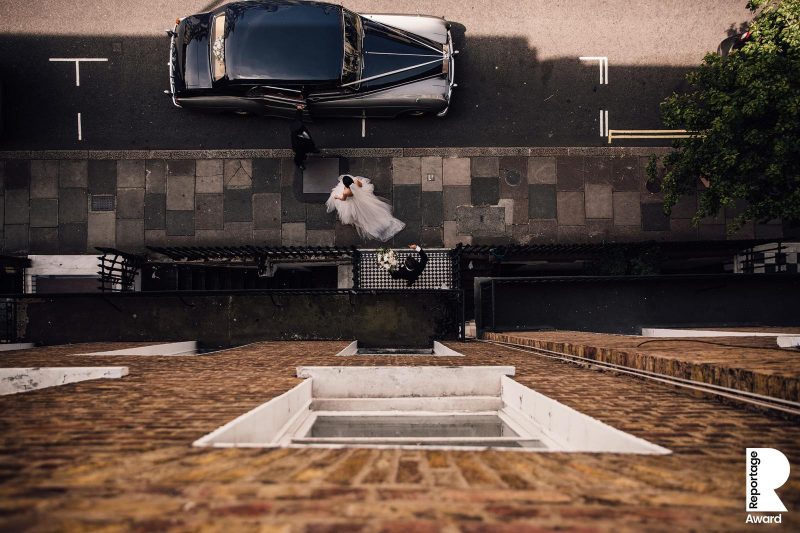
Alan Law:
That’s funny. Oh yeah about one of your specific Reportage Awards actually (above), which you also wrote a this is how piece for us from you’re like two stories up of the bride about into get into the bridal car. Yeah, I just love that shot man. Can you tell us about that and your thought process? You know, because I think most people I think wouldn’t think to even get that kind of shot, you know, of the bride getting into a car shot from out of a two story window. So yeah.
Sam Docker:
I mean, I wouldn’t, it’s weird. Like this is where kind of, I suppose experience and trusting in your instinct kind of starts to come into play, isn’t it? Because I would never go to a wedding thinking I was going to get that shot and I don’t go to any weddings thinking I’m going to get this type of shot today.
Alan Law:
Right. Okay.
Sam Docker:
I have to kind of let go and just accept that the creative process will kick in and in the moment that opportunity is going to present itself and I’ve just got to see it and take it. And actually the more, it’s really weird, like when I look back on when I first started weddings, I can still remember and I’ve probably still got them somewhere buried on a, you know, in a Dropbox folder. But like taking images that other photographers had taken and like putting them onto a Photoshop document and then taking a photograph of them and looking and trying to like, you know, reference them throughout the day at a wedding and I’m just like, I look back on it now and I think that was so the wrong thing to do. All that did was stop me seeing things in the moment and it stopped me like getting into that creative flow or that process or whatever it is that takes you down a path and sometimes you don’t know what you’re going to get. Sometimes you don’t get anything, but you’ve got to be in that process to be able to achieve something at all. And you know, talking and going back to that image as an example, you know, sometimes I’ll land on an image in a fraction of a second and it’s there in the can and just like, wow, how did that happen? And then sometimes I’ll see an image, you know, I saw that one that presented itself to me an hour before I even took it, just because I was in the room, they were all doing bridal prep and I was just looking out the window and the car pulled up. And you know what the wedding cars are like. They’re always there dead early, aren’t they? And then all the bridesmaids were like, oh, the cars are here. It’s okay. They’re just early because they don’t, you know, if they turned up right on time, you’d be worried. So yeah. And I looked out the window and I just saw it and I just took a picture of the car and then I just literally just thought that’d be a cool shot for when Abigail’s leaving. That’s so cool. And that was it. And then it’s just about right. I suppose it comes down to how have I got the confidence to say to Abi, I’m not going to follow you down the stairs. I’m gonna stay up here.
Alan Law:
Cause it’s a risk isn’t it? It’s a risk.
Sam Docker:
Oh massive risk. Yeah. Yeah. And 99 times out of a hundred, I would’ve just followed Abigail down the stairs, documented her getting in the car from her, you know, from the street. But I didn’t, something told me to stay up there and hang my camera out the window, fire off like a dozen frames as she’s crossing the pavement and then leg it down the stairs and that was it. You know, and sometimes getting that different perspective is, you know, they’re the stand out images, aren’t they, sometimes when you document something from a slightly different angle that people haven’t seen before.
Alan Law:
Yeah, exactly. Because everyone sees the world like just straight on that level. So something like that really, really stands out. And I think as you say though the images where you’ve taken a risk can often be you know, the best images, especially from the certain kind of like, you know, those big or those moments that you almost have an internal checklist that you need to get like the bride getting into the car or coming down the aisle or the first kiss, if you can get some risky, different composition or shot, then it’s awesome.
Sam Docker:
Yeah, and I do think maybe in the first, you know, first year or two of being a wedding photographer, you probably don’t have that confidence to just step out and do that and that comes with time. But you know, the more you shoot, you know, the more confident you are in turning up to a wedding and trusting your ability and your ability to be able to just execute a shot. You know, over time that you know, you start to take more of those risks and sometimes you have to accept you’re not going to get it. That shot might’ve just been okay, you know, obviously it worked out okay for me it was great, but you have to accept that it’s not always going to work, but what’s the worst that’s going to happen? You’re still going to deliver a shot. You just got to put yourself in the frame and just give yourself the opportunity and then make the most of it when you look back on it. And even on that day, you know, like I look back on that day and I can’t remember going back to that shot. Maybe when I’m sitting down to eat my dinner. I can’t remember going back to that shot thinking, Oh yeah, I’ve got an amazing shot there. Sometimes you don’t recognize it until the edit and you’re like that’s standing out now. And it’s funny, isn’t it? How some images come back to you like you know, even on a second, third or fourth pass, you might not see an image.
Alan Law:
So true. Cool man. This actual image that we’re talking about will be in the post. So it head to thisisreportage.com. What camera were you sticking out the window to get that?
Sam Docker:
I think it was a Canon 5D Mark III.
Alan Law:
Oh, was it? Cool. So were you even having to put your eye out there to the viewfinder? You weren’t?
Sam Docker:
No, no, I just literally just held my arms out and obviously we haven’t got the flippy screen up on those ones. So no, just like locked focus on the pavement and that was it. Just, you know, when she walked across just rattled off like a dozen frames and just hope that one works out.
Alan Law:
It’s so cool. It’s such a fabulous image. Yeah. That’s awesome. What are you using now? You still Canon?
Sam Docker:
Yeah, it’s still Canon. We moved to the Mark IV, which has been, you know, it’s been a decent upgrade.
Alan Law:
Wow. You’re not the only person shooting on Canon now.
Sam Docker:
I’m still waiting for Canon to ring me saying they want me to be an ambassador, but it’s not happening.
Alan Law:
After this podcast. You’re like the only Canon shooter and like you’re the only other Birmingham City fan I think.
Sam Docker:
I must be the only Birmingham City fan that uses Canon. Yeah. There’s not many. We’re a rare breed, a rare breed.
Alan Law:
Have you not been tempted then to change system like everybody else?
Sam Docker:
I have, I definitely have, but you know, I’ve just always found the system really comfortable to use and they just work for me. I’m not one to kind of jump around and I know people have jumped to, you know, other brands and stuff and been, you know, really positive about that change. And that’s great. Like if it works for you. Brilliant. But there are probably been people that jump to a different brand and then jump to a different brand. And then jump and I just don’t see the point sometimes. Like it’s not, I think sometimes photographers put too much emphasis on kit and not on the actual being present in the moment and you know, understanding what’s happening in front of you and being able to recognize. You know, I could still go to a wedding now with the Mark two and probably still shoot it. There are certain limitations like, you know, don’t get me wrong, like the Mark IV compared to the Mark II wipe the floor. But you know, it’s not always about the kit. That doesn’t make the great image does it?
Alan Law:
No, totally. Totally agree. Yeah. While you’re talking about then, what is your top tips for documentary wedding photography in general?
Sam Docker:
Documentary? So I suppose I’ve kind of got, I don’t know if I’ve got, I don’t really see myself as like a pure documentary photographer. I’d say myself slightly maybe fused with a few other little trends or styles, but I still have a massive appreciation for documentary. And I still think the bulk of the day for me when I go to a wedding is about documenting how I see things. But I suppose I kind of have a bit of a philosophy in that. We kind of touched on it earlier in that I go to a wedding, you know, I have no preconceived ideas as to what’s going to happen or what I’m going to get. And I really keep myself busy. I’m really focused on like making the most out of every scene, every part of the day. You know, I very rarely sit down to take a break.
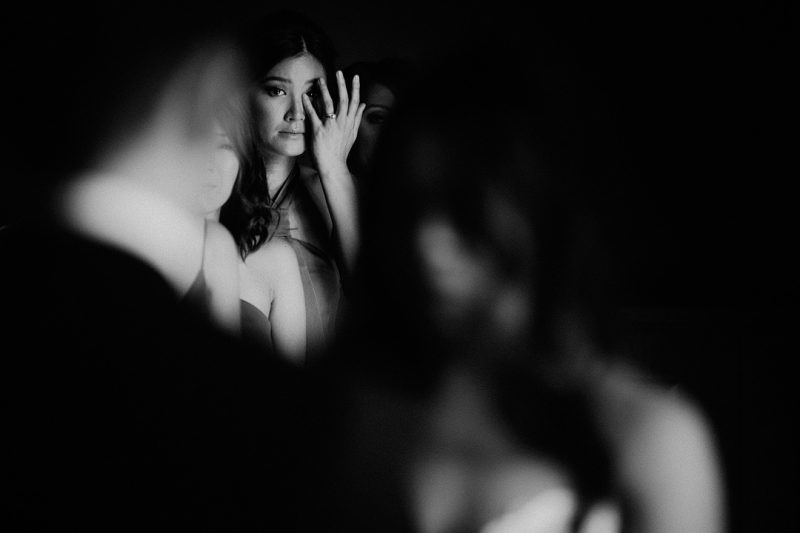
Alan Law:
Is that more your kind of fitness coming into its own?
Sam Docker:
Yeah I thin so. I think it comes down to just to kind of like looking at some images. Like for me, like if I look back in some weddings and I’m like, God, I got some really good images there just during dinner time like when people were sitting down eating, I’m like, right, I’m never going to sit down to eat. I’m never going to sit down, during dinnertime again because I can see that I’ve got those images so I’m not right. I’m going to keep myself busy because sometimes things can happen in the quietest moments can’t they? You just don’t know, do you?
Alan Law:
That’s cool man. I think most wedding photographers are not like that. So I think that’s really cool. You do seem to have a really strong work ethic, I think, which is really cool.
Sam Docker:
Yeah, I think, it’s just I suppose again, it comes from that fear of missing something. I think that’s always there in my mind that you’re only there for one day, so you’ve got to make the most of it.
Alan Law:
You stay really late, don’t you? Do you stay?
Sam Docker:
Yeah I stay, pretty much to the end. Yeah. And again, which is tough, you know, it just physically drain you. And that’s kind of why, you know, when I started to realize that I was staying late at weddings, I either had to change my approach a little bit, charge more and shoot less or I start finding a way to leave earlier and to charge more, shoot less was the one that won that one, because I just find it hard to leave the dance floor after the first dance because some of my favourite work is, you know, at the end of the night, you know, people when they’re saying goodbye to each other at a wedding, they hug each other for longer and they don’t want to let go. And I know that those things are happening. So the idea that I’d be in my car on the way home…I find it hard. I find it hard thing to break away from.
Alan Law:
That’s cool though man. And your clients will love you for that as well. I mean.
Sam Docker:
I mean, I think it gives you something that makes you stand out from maybe other people a little bit, doesn’t it? And I think a lot of my couples do book me wanting that coverage of the party. They don’t want a photographer to shoot the first dance and then already have his car fired up. You don’t do that, do you Alan?
Alan Law:
I don’t do that, no. I don’t do that Sam.
Sam Docker:
But then again, there’s no right or wrong, is there? Like I’m not going to say to other photographers that’s what you’ve got to do. Like every photographer has got to make that decision for themselves as to what’s going to work. I just personally find it hard to leave after the first dance. So there came a point where I was like, right, if I’m going to stay late and I’m going to shoot weddings abroad and I’m going to be away from my family, I’m going to have to charge for it. Yeah. Yeah. You can’t just carry on charging 1200 quid, 1500 quid and doing 60 weddings a year where you’re there till the end of the night. That would physically destroy you, wouldn’t it? You just couldn’t, no one’s got it in them to do that.
Alan Law:
Oh yeah. Yeah, definitely. Do you have any tips? I know because some people they kind of want to stay later, but then maybe they think that, you know, after the first dance and then after that first song that comes after the first dance where everybody gets up, sometimes the dance floor will just disperse and no one will be dancing or anything. And some photographers think well maybe nothing’s going on during that time. So do you have any tips for that kind of time at all?
Sam Docker:
Yeah, I mean I do think like going back to the previous question about kit and stuff, I do think that that’s where new kits definitely helped out. You know, I can shoot on the Mark IV at 12,800 ISO whereas on the Mark II, you know, I would rarely go to 3,200. So four years ago, you’d have to be like firing a flash gun and that’s, you know, it kind of goes against my approach for, I don’t like to feel like I might be intruding too much. Obviously a flash gun, you kind of, well that’s your cover blown isn’t it? Whereas, you know, you can now walk a room and even if people are sat down on live view with, you know, shooting wide open at 12,800, you know, you can get images. I think kit now has definitely helped. It’s definitely helped in my ability to be able to go and still work during that time of the night. Like three or four years ago when you’re on the Mark II shooting it, you’ve got no choice but to use a flash gun really. Whereas now on the Mark IV, I can shoot at 12,800 ISO wide open and people don’t know I’m working really. You know, whereas again, like four years ago you got flash gun in someone’s face. Well that’s a little bit intrusive, but it’s too intrusive for my liking. So I do think now, you know, it does happen at most weddings. Like they have the first dance and it peters out for an hour or two or whatever. And you know, sometimes you just have to just be present, I think. You know, sometimes there isn’t much to document or there isn’t anything to take, but you know, it’s amazing what can happen if you just stay alert and you just keep observing people and you just go and chat to people and you just be involved. You know, it only takes a second for something to happen and if you’re there and in the room and observing people, you’re giving yourself a chance to get something. And you know, I might spend an hour of that night and might only take five or six frames, but I might take a hundred frames. Yeah. It depends on what’s on what’s happening. But then the dance floor does tend to pick up, you know, it does happen and before you know it, you’re back on the dance floor and things are happening again. So it’s just keeping yourself busy I think.
Alan Law:
Yeah. Well that’s cool. Cool. Very cool man. I’m changing tack slightly again, but I read on your about page that you once had a hole in one. You know, crazy golf doesn’t count, right? Yeah. But did you, so what was that? Like a par three proper golf then?
Sam Docker:
It was a proper golf course. Yeah. I used to be a very keen golfer, but then, you know, kind of like with the football and going to the blues, you know, being a wedding photographer, having a wife and having children, you know, you know what it’s like. Those hobbies and pastimes, they very quickly disappear, don’t they? They get binned very quickly. And the idea of spending money and going to a football game now is just not going to happen. But.
Alan Law:
Just to see Birmingham lose every weekend.
Sam Docker:
No thank you. But no, I used to love golf and yeah, used to be a very, you know, I spent more time on the golf course than I did at sixth form I think.
Alan Law:
Do you have to buy everyone a round of drinks if you get a hole in one or something?
Sam Docker:
You’re meant to, yeah, I think I was only 15 so probably wasn’t gonna happen was it?
Alan Law:
Some like orange hooch. Have you ever met or photographed anyone famous?
Sam Docker:
Oh, I’ve signed NDAs for them.
Alan Law:
Does it count on like audio? I don’t know.
Sam Docker:
I think I can mention it, yeah, there’s been a few people at weddings that have been famous, like Ellie Goulding was on at one recently.
Alan Law:
Oh wow. Really? What she a guest? Did she sing?
Sam Docker:
She was a guest? Dua Lipa.
Alan Law:
Really?
Sam Docker:
And oh, what’s the other girl’s name…?
Alan Law:
I love the new Dua Lipa album. It’s awesome.
Sam Docker:
Gosh. And then a girl sang at it. And she’s had an album out recently.
Alan Law:
That doesn’t really narrow it down.
Sam Docker:
It will come to me in a bit. There’s been a few. Fearne Cotton, do you know her?
Alan Law:
Yeah, I quite like Fearne Cotton.
Sam Docker:
She was lovely, she was nice. Oh yeah. But you know, yeah. It’s like, I don’t know. I didn’t really, some photographers when they’ve shot famous people use that don’t they.
Alan Law:
Yeah. All over their portfolios.
Sam Docker:
It doesn’t matter. Like it’s not, they’re just people at weddings aren’t they?
Alan Law:
That’s cool. That’s cool. Has there been an occasion where you’ve been really, really embarrassed at a wedding or otherwise?
Sam Docker:
Have I knocked anything over at a wedding before? I don’t think I have.
Alan Law:
Have you not?
Sam Docker:
No. I think weddings have generally been okay. I’ve probably dropped a camera. That’s probably about as bad as it got.
Alan Law:
Right. That’s pretty bad.
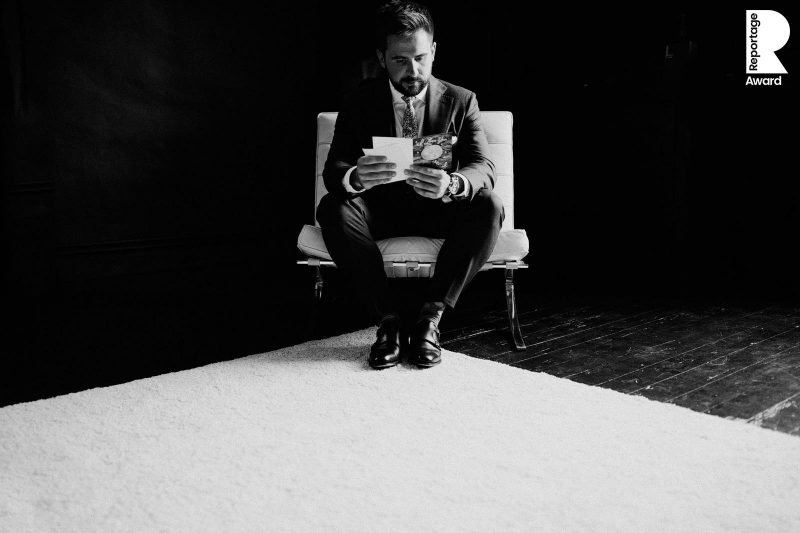
Sam Docker:
And then I suppose the only kind of embarrassing moment of being a photographer was not turning up to an engagement shoot when I should have been at an engagement shoot. That was a big one. And then the engagement shoot was an hour away and the couple had driven an hour and a half.
Alan Law:
Were they all right with you?
Sam Docker:
You know what? Like honestly you look back on things you think, how on earth were they, like, they were so lovely to me. Basically we’d just moved house. We were expecting our second child, Buddy in about three weeks’ time. I was like trying to get the house ready, like sanding floors and I just, you know, you know what it’s like, it’s just a stressful time isn’t it? And the guy phoned me up, and was like ‘we’re just checking we’re in the right car park?’ and I was like, Oh crap. And I was like, mate, I’m so sorry. I was, you know, you just have to hold your hands up and just be as apologetic as you can be. Straight away obviously I told them that, you know, we’ll reschedule it, I’ll fully refund you, you know, and he was like honestly mate, don’t worry about it. These things happen. Like if that was me and my wife, I’m not sure we’d have been so understanding, so yeah, I got lucky there. I got lucky, but that was, yeah, that was about as embarrassing as it’s been, I think in the seven years so far.
Alan Law:
That’s not too bad. That’s not too bad. It’s funny how you forgot. Me and Oni were once just watching TV at nine like half and then we remembered, we actually had like two tickets to a stand up gig in Cornwall and we just totally forgot. We were just watching telly. Yeah. So you forget things, don’t you? I’m getting older, man, I’m like almost 40. So it naturally happens. Almost 30. Did I say almost 30? I mean. What would be your top tips for people just starting out in the industry? Because there’s a whole range of people I think who listen to this podcast. Obviously people have been going for years, but then some people are just starting as well. So yeah. What would be your tips for them?
Sam Docker:
Oh, I just found that artist’s name. That’s it. Sorry mate, I had to go because you know, when you’ve got something bugging you. Yeah, it was Lana Del Ray.
Alan Law:
Oh really? Wow. I love video games
Sam Docker:
She sang at the wedding. She sang. So that was cool. Oh, top tips. So I think when you’re starting out, I think you’ve just got to accept that, you know, you’re on a bit of a path and a journey and that you’ve just got to work hard and just hone your craft, but then there comes a point when you have to start to then focus on what it is you’re about and try not to appease and please or satisfy other wedding photographers. Don’t fall into that trap of trying to impress other photographers. You know. Just do a good job for your couples. Remember why they booked you, why they’ve chosen you, you know, I think we’ve probably all been guilty of it in the early days, but like, you know, you try different things and, you know, you’re open to probably gimmicks or trends and trying to, you know, post for likes and doing that kind of thing. And actually it’s a dangerous path to go down. Yeah, because you know, we can look at it now and look back on our work and kind of go actually what people are booking, they’re booking you for, you know, and they’re trusting in you as a photographer to be able to do a consistent job, you know? And I think one of the biggest mistakes photographers make is they show such a variety of styles and too many different types of images that they don’t appeal to anybody. So I think, you know, just, just being, you know, I talk about on workshops and when I’ve done other interview and stuff, but like the power just being consistent with your work, you know, it’s huge.
Alan Law:
I think that’s something you’ve really nailed actually. I think you’ve got a very kind of like very strong overall brand and consistency and creativity. Like you can see one of your images and kind of that’s yours, which I think is obviously awesome to get. Yeah. I mean, I remember starting out and just not, you know, I kind of shot it from the way I thought this is how I want to shoot it. Did you ever start like second shooting or anything or did you just go into it?
Sam Docker:
I don’t think I’ve ever second shot. I think I might’ve just helped out a couple of friends, a couple of photographers before, but generally never really second shot for anybody.
Alan Law:
But kind of deep, just going into the deep end mentality then I think it’s really worked well for you. Yeah?
Sam Docker:
Yeah, yeah. Yeah. Definitely. It’s definitely kind of it’s definitely, some people take to that more than others, don’t they? Like some people are great photographers, like way better than us, but they’re terrified by weddings and they’re terrified by people and they just can’t handle it. Whereas there’s a lot to be said for just actually being, you know, having a personality at a wedding and going to a wedding and just being a nice guy or nice person, nice photographer and just getting involved. And that opens up so many doors for you when you’re at a wedding when you’re not seen as ‘the wedding photographer’.
Alan Law:
Yeah. What are you like on a wedding day? Are you quiet? Do you banter and talk to guests?
Sam Docker:
I love getting involved. When couples say, do you want to sit at the table or do you want to like, just have a meal in the bar? No, put me at a table. I’d rather sit at a table. I mean, don’t get me wrong, I get up and move around. But I’d rather just mingle with people and, you know, have a chat to them and be involved. I think that’s probably a really key part of what it is I think we do, is like, I just love being involved with people and I love stories and you know, that’s a massive part of our photography business is understanding, you know, if you’re goingto be a wedding photographer, you’ve got to love people. You’ve got no choice. You can’t, you know, you can’t be a miserable old git and be a great wedding photographer. They don’t go hand in hand, do they?
Alan Law:
No, that’s so true. I think that must really help with all the guests kind of trusting you and having that warmth for you. And then you being allowed to be in their presence and them just being totally natural then as well.
Sam Docker:
Again, it’s the biggest marketing tool that you have available to you. You know, like people go on about SEO and all of those other things. But the first and the best form of marketing you have is the weddings that you’re at. You know, again, going back to the last one. Last question about top tip. I don’t get sucked into just thinking it’s all about your couple, right? It’s not all about portraits. You know, you can get some amazing portraits in 10 minutes, that’s it. That’s going to be enough for your couple. I kind of go to weddings and I want people that are just there as a guest to go away having thought, Oh, Sam seems like a nice guy and Oh, and then a few weeks later, or like six weeks later, they’ve got images and they’re like, Oh, there’s a lovely image of me and my mum there? You know? And they were just guests. They were just guests at the wedding, you know, you’ve got people then. It’s all well and good. Your couple are always going to recommend you and talk about you because you’re going to have done a good job. Touch wood. If you can leave the wedding and you’ve got a hundred people that are going away and saying that photographer, he seemed like a nice guy. the marketing, the power of that reach and that audience that, you know, you’ve got a hundred people going away talking about you rather than just three. It’s massive. Isn’t it?
Alan Law:
That’s very cool. But Sam, how do you dupe a hundred people into thinking you’re a nice guy?
Sam Docker:
It costs me a lot of money. Like I have to go around giving five pound notes out.
Alan Law:
That’s funny.
Sam Docker:
Oh, you just got to, you know, it just comes down. Just go to weddings, enjoy it, like put a smile on your face, get involved, ask people, people love to talk, don’t they? Just ask them questions, you know? And it’s amazing where that can take you. I kind of look back on jobs I had before that, like, you know, I used to work in retail a lot on shop floors.
Alan Law:
Didn’t you work in McDonald’s?
Sam Docker:
Worked at McDonald’s. Yeah. Yeah.
Alan Law:
You never told me that before, that’s like amazing.
Sam Docker:
That was my first job.
Alan Law:
That’s like the dream job.
Sam Docker:
It kind of wears off after about three shifts mate.
Alan Law:
But could you eat as much food as you wanted?
Sam Docker:
I knew this was going to happen. You were given a McDonald’s meal for your lunch break.
Alan Law:
A happy meal?
Sam Docker:
No, a full meal.
Alan Law:
Oh wow. What could it be? A large one.
Sam Docker:
You could pick whatever you want. You can have a large meal Alan, yes. It’s really weird when you’ve worked there, like you’ve done like nine hour days, like your appetite is gone. There is no appetite. You couldn’t, I mean, you could, I couldn’t. I remember getting home from those shifts and you know, I was living at home, so I was only 16 and you know, my mom had like a Sunday roast and I’m like I can’t eat. I’m not hungry. Just like working around food all day. It’s not, but yeah. But going back to that, that as a job. You know, you kind of look at it at the time and I think, Oh, it’s just a job. I just got me beer money. That’s all it was. But actually it taught me an enormous amount. You know, McDonald’s is an incredibly well run organization, you know, like you look at them compared to like KFC and Burger King. And like, I find it hard to go in. I mean, I’m vegetarian now, so I wouldn’t go in them anyway. But you know, you look at how they run their business behind the counter and like, you know, McDonald’s is on it. They’re, you know, incredibly well run as a business.
Alan Law:
Yeah. Don’t they often get voted quite as high up in like employers kind of awards and things?
Sam Docker:
Yeah. And the biggest thing that struck me when I worked there was just how, just the levels of hygiene, like how, you know, like the clean down at the end of the night, how brutal it was, you know, and, you know.
Alan Law:
That’s good to know.
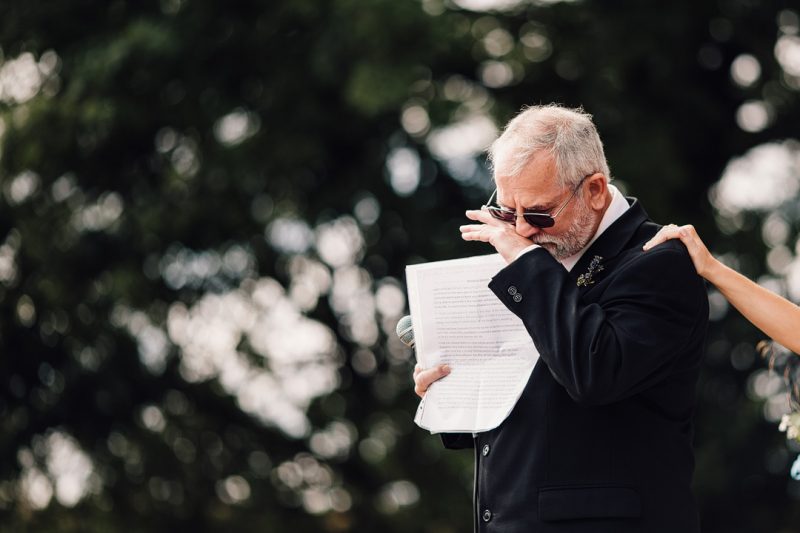
Sam Docker:
Yeah. It’s definitely. I’ve got a lot of time and respect for McDonald’s.
Alan Law:
Your time working there, did it make you a vegetarian then? It wasn’t because they just put rabbits or squirrels in…?
Sam Docker:
That only came a couple of years ago. So a fully-fledged meat-eater up until, you know, two years back, but I’m just going back to like the people thing as well, like working on shop floors and just go in and just having that ability to be able to go up and talk to somebody, something that I think a lot of people actually do struggle with.
Alan Law:
Yeah, it’s a huge deal. It’s a huge deal in life and in wedding photography.
Sam Docker:
Absolutely. Yeah. Yeah, totally. And I always say when I talk to couples and, and we, you know, before when they were just Skyping and stuff, I try and talk to them about how I try not to see myself as a wedding photographer, you know, like the bridal prep side of the day. For me, isn’t always about the images. It’s about kind of getting to know your close friends and family. Like, I want to know them a little bit so that when it gets to the pressure part of the day, you know, and I’ve got to step in and get a shot of them. They’re not offended by me doing that because I’ve broken down that barrier. Yeah. That’s a massive, massive thing. If I turned up to a wedding cold and I hadn’t had that time to just chat to them and joke to them about whatever, you know, and I just turned up to the wedding. I was like, right in their face with the camera, they’re going to be like, what? Who is this guy? So just trying to remove those barriers, I think is a really big part of the, the prep side of the day, for me, more than the images. And then if you get an image that’s like a winner then great. It’s a bonus, isn’t it?
Alan Law:
Yeah. That’s awesome. That’s awesome advice. That really is. I don’t normally ask very technical questions, but I think people who know your work might be interested in this as well.
Sam Docker:
I’m like the least technical photographers you’re ever gonna meet. I really couldn’t care less. I mean, me saying 12800 ISO is like, you know, that doesn’t happen very often, I didn’t realize there was a tint slider in light room until about three years ago.
Alan Law:
Yeah, no, that’s good. This is not a very technical question, but I think some people would be interested to know, but to get, do you have a favourite lens or favourite focal length? I know that’s not very technical, but I suppose.
Sam Docker:
Yeah. I mean the one that I would say is against the norm of a lot of photography. I mean, like 35 mm for me is like my go to, that’s not the absolute workhorse for me. I love that focal length. And that pretty much 90% of the days is on one of the bodies. And then the other one for me, I love my 135. That lens almost has made me stay with Canon.
Alan Law:
Okay. I never tried it actually.
Sam Docker:
Pin-sharp, dead fast, beautiful, you know, beautiful colours. I just love it. And I use it in a very different way to maybe how I would have used it four or five years ago, you know, four or five years ago, it was about just kind of giving me just a bit like I would probably marshall from bit further back, you know, and work room and it would allow me to keep out of the mix a little bit. Whereas now I use it in the mix. I like to get right in people’s faces with it, or, you know, details or hands and things like that. Just to piece a story together rather than using it from the back of the room.
Alan Law:
Okay. That’s cool. Cool. Good to know. And regarding your editing specifically, I think, because you really nail it. Always so consistent with you as well. Can you tell us a bit about yours? You know, any tips, bits of advice or anything?
Sam Docker:
Yeah. So I mean, editing is one of those, it’s a minefield, isn’t it? I suppose a bit of a pet hate of mine is like photographers that just might want to know about what preset you’ve got, Oh yeah.
Alan Law:
I didn’t ask that. You don’t have to tell us that.
Sam Docker:
No. It doesn’t matter. No, I don’t even think you can buy them now, but I use a, you know, I use a VSCO preset, but it’s almost been so altered from the time that I bought it that it’s almost not even a VSCO preset anymore. For me, it doesn’t matter. I could take four or five different presets and I’m going to edit it and tweak it to a point that it’s going to end up at the same product, it’s going to end up at the same final image because I think it’s about training your eye to know what you want to look for and how you want that image to look and then it’s just about being consistent with it, you know, again, consistency, isn’t it.
Alan Law:
And you’re so consistent, which is awesome, I think.
Sam Docker:
But you know, having that, you know, obviously I’ve created my own preset off the back of that VSCO one and then just, you know, I use Pfixer keys just to edit, you know, I know there’s like boards and stuff out there now aren’t there and stuff dials and I’ve tried them, but I just find keys really quick and rapid for me, they just work.
Alan Law:
Same as me but I’m PC, so I use LR Keys but yeah, keys is great. So quick.
Sam Docker:
It’s really quick, really quick. And it’s just about like, just zoning out from like the internet and just trying to just focus on, you know, getting your preset applied to all of your images and then just working through it and just try not to overcomplicate it and just balancing the image quickly and moving through them. So, you know, yeah. We’re running a business at the end of the day. I’m not, you know, if a wedding edit is taking me four days, I’m not running a very good business, you know, I’m not saying I rush an edit. I still try and do a second pass and just make sure that everything’s right. But, you know, an edit should really take, it takes me about five to six hours to do a full edit.
Alan Law:
That’s good. That’s really good. As you say, we are running a business, it’d be pointless if we’re just slave to the computer every second of the day. So that’s cool.
Sam Docker:
Yeah. You know, like when you’ve got kids and a wife, you don’t want to be chained to your desk editing like, Oh, I’ve got 14 weddings to edit here. You know, it’s gonna take me the next four months of my life. I just want to want to get it done, get it out the door and get back to having a bit of a life.
Alan Law:
You mentioned there, when you edit you, like would you have music on, or like some photographers have Netflix on as well? Or do you?
Sam Docker:
How do people watch Netflix? Can’t do it. No. So I know I just have, I rent a desk in an office. So you know, I’ve got, there’s a team of four or five guys that work in a design studio next to me. So that’s great. It’s a little bit of a kind of social interaction, but generally it’s just headphones on and just get on with the edit, you know, kind of make it sound like I’m rushing clients edits. I’m not, you know, it’s just, I know what to look for. And I try and stick to that, stick to that path and not get sucked into, you know, spend, you know, if I spend more than two or three minutes on a single image, that’s a minute too long for me, you know?
Alan Law:
And it’s cool. You nail it as well.
Sam Docker:
Pretty quick at working through them.
Alan Law:
Yeah. And nailing it, man. Honestly nailing it. Cool, man, I always say it, but it has really flowed by that’s mental.
Sam Docker:
How long have we been talking for? That’s a good hour isn’t it?
Alan Law:
Yeah. Yeah man. Yeah. That’s awesome. Just because we mentioned Netflix, so it’s just in my head, what are you currently watching or what’s your favourite Netflix series? Any tips? Everyone’s always looking.
Sam Docker:
So I use Netflix actually in talking about workshop stuff and just the importance of understanding how like content like that influences you as a photographer, just make it, make sure that you’re making note, like just being aware of how you know, consuming good content influences your style and what you look for at a wedding. You know, I often go to weddings and subconsciously almost like transfer what I’ve seen on Ozark into how I see a scene at a wedding. Ozark’s a big one that I’ve just finished. Loved that.
Alan Law:
We’ve watched the first two series, but not the third series.
Sam Docker:
Yeah. That’s great. That’s great. I’ve always loved Better Call Saul. And then have you seen the new The Last Dance, the Jordan…?
Alan Law:
We’re halfway through that at the moment. It’s really, really, really interesting. Yeah.
Sam Docker:
They put some good stuff together, Netflix like that. It’s been really, really good.
Alan Law:
Yeah. I mean, yeah. I’m talking about the BBC, the TV license recently with Oni, surely that’s got to go at some point.
Sam Docker:
It’s going to, isn’t it, at some point. And then away from Netflix, have you seen Gangs of London?
Alan Law:
I haven’t. No. Is that a prime thing?
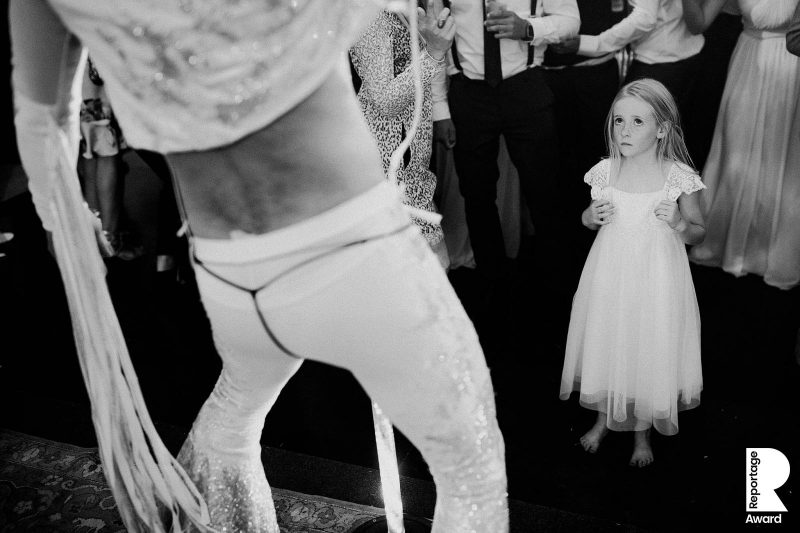
Sam Docker:
It’s brutal. It’s brutal. It’s on Sky Atlantic.
Alan Law:
Oh, okay. No, is it good?
Sam Docker:
Yes. It’s brilliant. I won’t give anything away.
Alan Law:
I don’t have Sky Atlantic though, we don’t have sky, man. That’s like an excess. Okay. One last question. Biggest question ever. Do you eat the canapes?
Sam Docker:
If they’re vegetarian. Yes I do. You’ve got to haven’t you? Yeah, you’ve gotta. I mean, most couples generally lovely. Aren’t they? Just help yourself to whatever you want. Right. Okay. That’s it. I’m going to help myself to whatever. I’m in.
Alan Law:
Do you ever, you don’t have a specific technique for like stealing a canopy then?
Sam Docker:
I’ve got no shame, no shame. You just go straight in. Yeah. I mean, I probably let them just do one lap of the room before I go in.
Alan Law:
Oh, okay. That’s nice. Yeah. Let the bride and groom get one.
Sam Docker:
I’ll let them get one. And then I do have to be told, I find it hard to just help myself without kind of being told, like you just help yourself to whatever you want. I kind of do need that signal, but once I’ve had that signal, that’s it. We are going in.
Alan Law:
Awesome, dude. Thank you so much.
Sam Docker:
Thanks for having me. It was a pleasure to catch you up. Let’s not leave it three years until the next chat, shall we?
Alan Law:
I know, dude. I know. I know. I want to play table tennis with you again as well.
Sam Docker:
We’ll have to try and arrange that. You can’t really play virtual table tennis. Can you?
Alan Law:
Well, actually you can in VR. You can in VR if you’ve got a VR headset. Yeah. It’s quite nifty actually. Yeah, next time you’re down in Cornwall, man, just come and stay with me.
Sam Docker:
I’ve got a couple of venues down there that I shoot at quite often. Lusty Glaze…Nancarrow is nice.
Alan Law:
Nancarrow is literally five minutes from me because I live five minutes from Truro.
Sam Docker:
You had a go at me last time I came down there and didn’t…
Alan Law:
Yeah. Yeah. What’s that about man?
Sam Docker:
Thanks for having me on mate.
Alan Law:
It’s an honour to talk to you.
Sam Docker:
Excellent work with This is Reportage as well. Looking great.
Alan Law:
Thank you, man. Thank you.
Sam Docker:
Nice to see you growing steadily.
Alan Law:
Oh, thanks man. Yeah, I’m enjoying it. A lot of work, but I’m really enjoying it. Anyone listening to this head to thisisreportage.com and I’ll show loads of examples of Sam’s work and links to his websites as well. And yeah, man, thank you and stay safe.
Sam Docker:
Pleasure. You too Alan. Catch you soon, mate. Take care.
Alan Law:
You too. Bye bye.
***********************************************************
Thanks for listening to/reading our Sam Docker interview! Check out lots more of his work over on his website.
Interested in joining us? We’ve just added a major new addition to membership at no extra cost: Exclusive video content. Learn from some of the world’s best documentary wedding photographers with over 8 hours worth of video, with new videos to be added regularly. This is on top of the rest of our membership benefits, which include an unlimited number of images on your profile, 60 Reportage Award entries and 18 Story Award entries per year, and much more…
